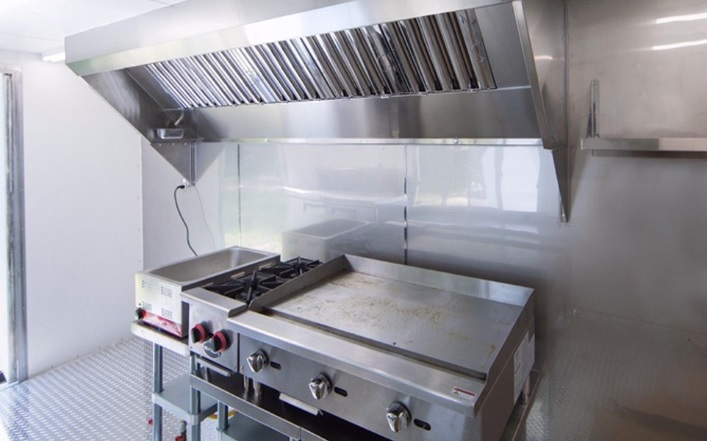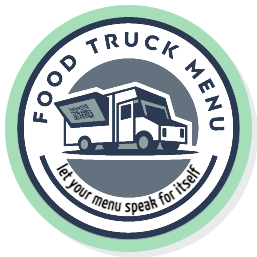Smart Operational Safety Strategies Food Truck Owners Need to Follow
Food trucks represent one of the areas of the food service sector that are expanding at the quickest rate. This year alone, businesses operating out of food trucks earned over $2.3 billion in sales across the United States. This number is anticipated to expand by another $500 million by 2022.
Having more food trucks on the roadways of the United States isn't necessarily a good thing, either.
In this rapidly growing section of the food service business, operators with insufficient expertise face a substantial fire danger. Because of the potential hazards posed by cooking appliances and chemicals, it is vital to take extreme caution while running a company out of a food truck. As a result, if you are the new proprietor of a food truck, it is of the utmost importance that you conduct your research regarding food truck safety.
So, what exactly can you do to prevent someone from breaking into your food truck?
To get you started, here are some food truck safety guidelines to keep in mind:
It is recommended that an Automatic Fire Suppression System be put in place
There is always the potential for a fire to start when you cook, regardless of whether you use gas or electric appliances. Because cooking equipment is responsible for most food truck fires, several municipal governments have mandated installing automated fire suppression systems in food trucks. Even if it isn't required in your city, acquiring one is still a good idea, just in case something unexpected happens.
The chemical agents that put out fires are discharged automatically if there is a fire. Using the manual switch installed on the food truck, you can cut off the power or fuel supply to the cooking equipment in the event of an emergency.
When your food truck is being manufactured, you should ensure that a trained professional is installing the fire suppression system. You should have a trained expert examine your fire suppression system at least twice yearly to ensure it continues to operate effectively. Ask the system's maker to point you toward a qualified distributor who can carry out routine maintenance and inspections so that you may find an inspector in your region.
Check to See if There Is Sufficient Airflow
To keep the kitchen free of smoke, steam, dust, and other particles of debris, it is essential for any food truck business to have a ventilation system of the highest quality. It also prevents oil droplets from accumulating on the pan's surface, which helps keep kitchens from becoming greasy.
Grease, smoke, dust, steam, and other contaminants can be hazardous to the health and safety of employees if they are allowed to accumulate uncontrolled. The presence of slippery circumstances, such as those brought on by greasy surfaces, can bring about a variety of unfavorable outcomes. Dust, steam, and debris are all potential sources of contamination in food, which poses a threat to one's health.
As a consequence, doing routine checks and maintenance on your ventilation system is necessary if you want to guarantee that it performs as effectively as possible. In addition, you need to routinely examine and clean the various components. Keep an eye on the vent hood, exhaust fan, hood filters, grease containment system, and ductwork of the food truck. All of these components are important.
Because hood filters are susceptible to damage, they must be checked regularly for any signs of wear and tear. If the issue continues, a replacement may be required. In addition to that, check to see that the belts on your exhaust fan are in good operating order. As a result of how readily they may become damaged, fan belts are one of those things that should always have a spare one available.
Make sure you check for any evidence of wear and tear on the wire attached to your fan and motor. Check that the exhaust fan for the upblast is always in the level position. Additionally, the bearings need to be maintained in pristine condition. The roof-mounted fan on your truck will be stressed by flying debris and severe weather conditions. Because of this, you will need to check for any damage and inspect it consistently.
Invest in some fire extinguishers, just in case.
Invest in many fire extinguishers for class K. These are the most effective extinguishers for flames involving grease, oil, and fats. Because of the extreme temperatures, it may be impossible to put out these flames with anything other than a truck-mounted fire extinguisher. On the other hand, ABC extinguishers can put out flames in wood, paper, and plastic in addition to electrical fires.
It is essential to keep in mind that fire extinguishers of class K perform their function most effectively when used in combination with an internal hood suppression system.
Maintain a vigilant lookout for Grease in your Vehicle's Exhaust System.
Food truck owners are required to have quarterly inspections of high-volume equipment following the NFPA Fire Code. The National Fire Protection Association mandates that inspections occur every six months for systems utilized in medium-volume activities.
In addition, regulatory authorities mandate monthly inspections of exhaust systems that service cooking equipment that operates on solid fuels. Many additional standards must be met. If you utilize charcoal, wood-burning ovens, or food warmer burners, you must have a trained inspector evaluate your exhaust system regularly.


Food trucks represent one of the areas of the food service sector that are expanding at the quickest rate. This year alone, businesses operating out of food trucks earned over $2.3 billion in sales across the United States. This number is anticipated to expand by another $500 million by 2022.
Having more food trucks on the roadways of the United States isn't necessarily a good thing, either.
In this rapidly growing section of the food service business, operators with insufficient expertise face a substantial fire danger. Because of the potential hazards posed by cooking appliances and chemicals, it is vital to take extreme caution while running a company out of a food truck. As a result, if you are the new proprietor of a food truck, it is of the utmost importance that you conduct your research regarding food truck safety.
So, what exactly can you do to prevent someone from breaking into your food truck?
To get you started, here are some food truck safety guidelines to keep in mind:
It is recommended that an Automatic Fire Suppression System be put in place
There is always the potential for a fire to start when you cook, regardless of whether you use gas or electric appliances. Because cooking equipment is responsible for most food truck fires, several municipal governments have mandated installing automated fire suppression systems in food trucks. Even if it isn't required in your city, acquiring one is still a good idea, just in case something unexpected happens.
The chemical agents that put out fires are discharged automatically if there is a fire. Using the manual switch installed on the food truck, you can cut off the power or fuel supply to the cooking equipment in the event of an emergency.
When your food truck is being manufactured, you should ensure that a trained professional is installing the fire suppression system. You should have a trained expert examine your fire suppression system at least twice yearly to ensure it continues to operate effectively. Ask the system's maker to point you toward a qualified distributor who can carry out routine maintenance and inspections so that you may find an inspector in your region.
Check to See if There Is Sufficient Airflow
To keep the kitchen free of smoke, steam, dust, and other particles of debris, it is essential for any food truck business to have a ventilation system of the highest quality. It also prevents oil droplets from accumulating on the pan's surface, which helps keep kitchens from becoming greasy.
Grease, smoke, dust, steam, and other contaminants can be hazardous to the health and safety of employees if they are allowed to accumulate uncontrolled. The presence of slippery circumstances, such as those brought on by greasy surfaces, can bring about a variety of unfavorable outcomes. Dust, steam, and debris are all potential sources of contamination in food, which poses a threat to one's health.
As a consequence, doing routine checks and maintenance on your ventilation system is necessary if you want to guarantee that it performs as effectively as possible. In addition, you need to routinely examine and clean the various components. Keep an eye on the vent hood, exhaust fan, hood filters, grease containment system, and ductwork of the food truck. All of these components are important.
Because hood filters are susceptible to damage, they must be checked regularly for any signs of wear and tear. If the issue continues, a replacement may be required. In addition to that, check to see that the belts on your exhaust fan are in good operating order. As a result of how readily they may become damaged, fan belts are one of those things that should always have a spare one available.
Make sure you check for any evidence of wear and tear on the wire attached to your fan and motor. Check that the exhaust fan for the upblast is always in the level position. Additionally, the bearings need to be maintained in pristine condition. The roof-mounted fan on your truck will be stressed by flying debris and severe weather conditions. Because of this, you will need to check for any damage and inspect it consistently.
Invest in some fire extinguishers, just in case.
Invest in many fire extinguishers for class K. These are the most effective extinguishers for flames involving grease, oil, and fats. Because of the extreme temperatures, it may be impossible to put out these flames with anything other than a truck-mounted fire extinguisher. On the other hand, ABC extinguishers can put out flames in wood, paper, and plastic in addition to electrical fires.
It is essential to keep in mind that fire extinguishers of class K perform their function most effectively when used in combination with an internal hood suppression system.
Maintain a vigilant lookout for Grease in your Vehicle's Exhaust System.
Food truck owners are required to have quarterly inspections of high-volume equipment following the NFPA Fire Code. The National Fire Protection Association mandates that inspections occur every six months for systems utilized in medium-volume activities.
In addition, regulatory authorities mandate monthly inspections of exhaust systems that service cooking equipment that operates on solid fuels. Many additional standards must be met. If you utilize charcoal, wood-burning ovens, or food warmer burners, you must have a trained inspector evaluate your exhaust system regularly.
